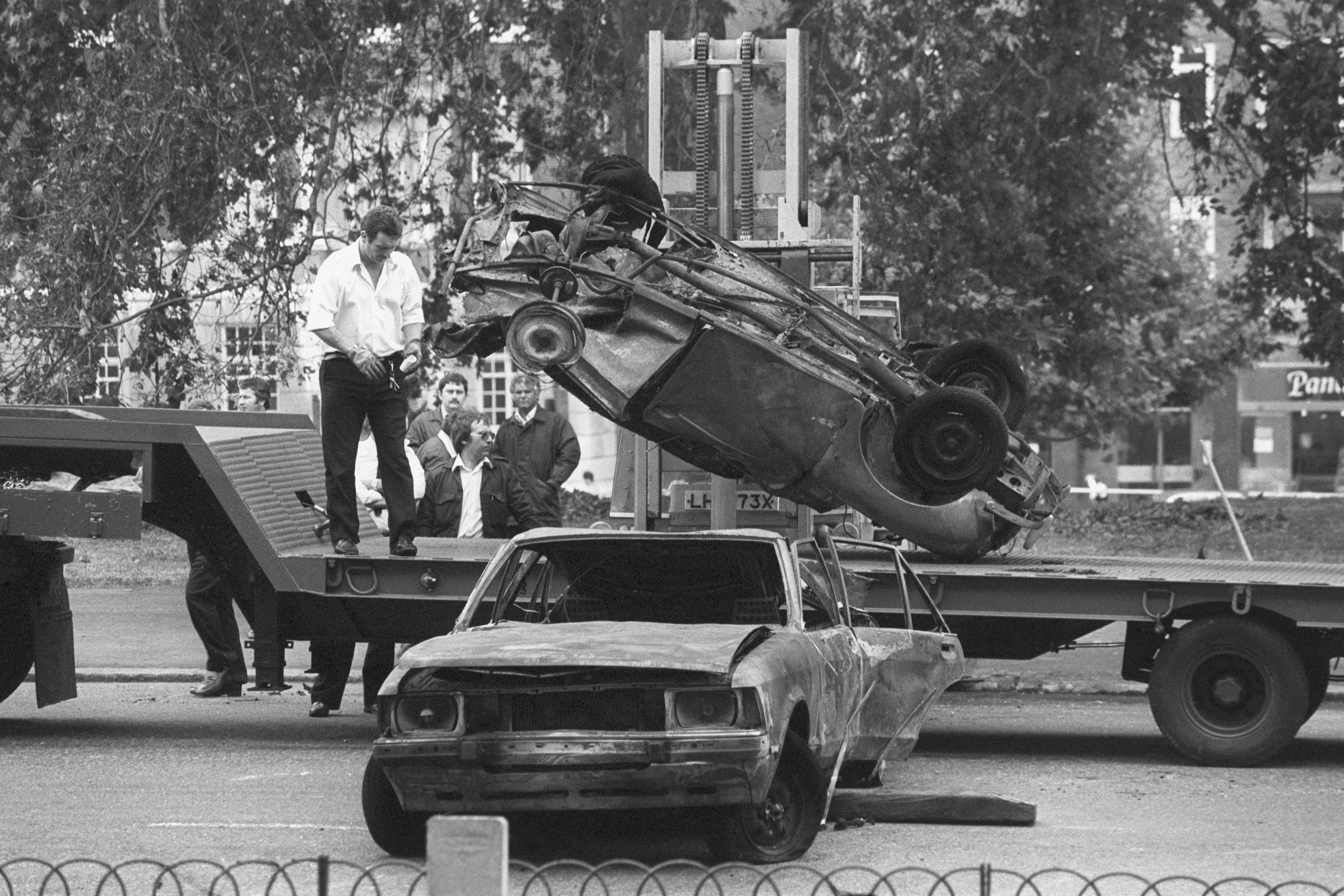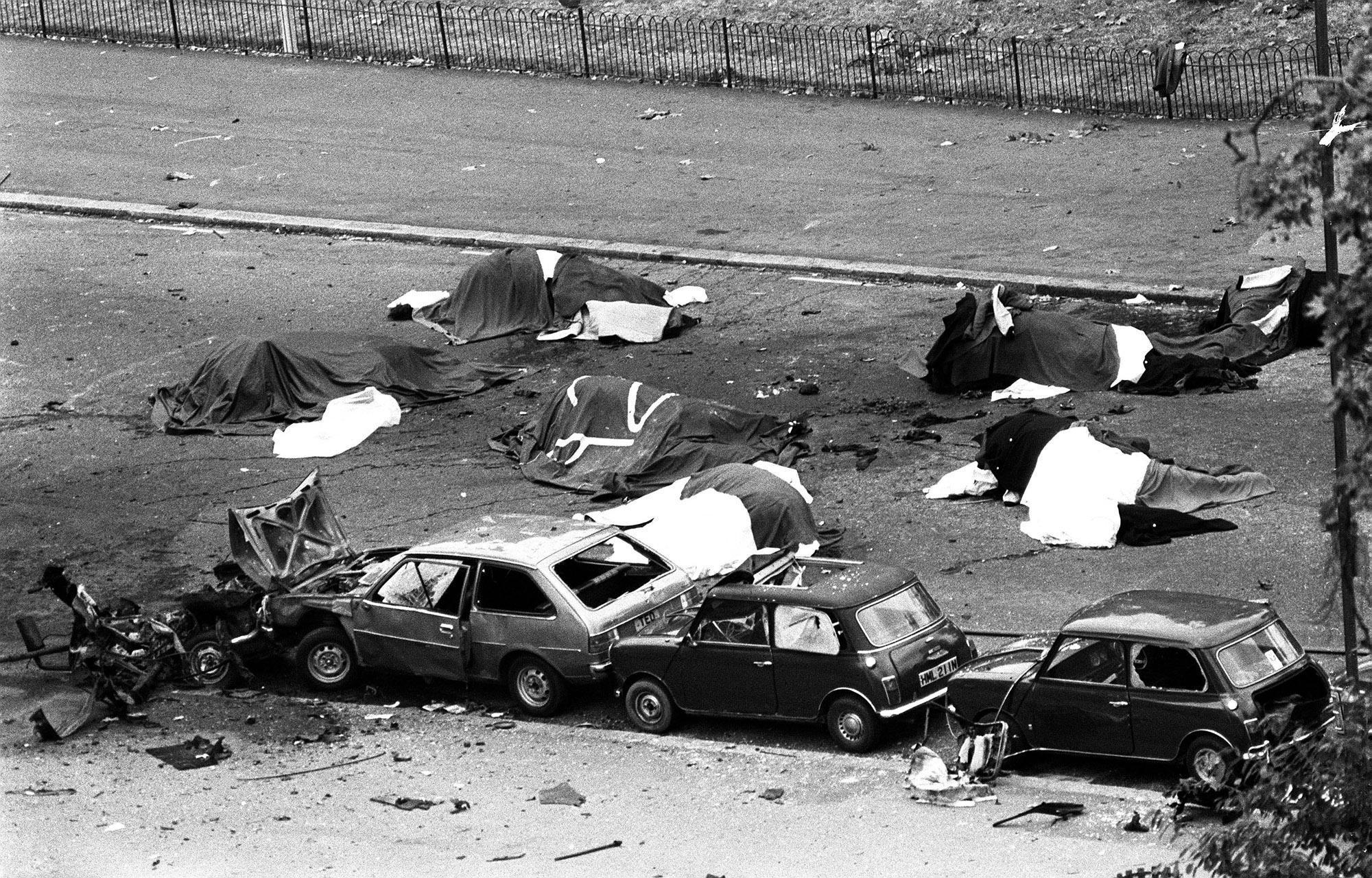
Hyde Park and Regent's Park victims' families search for justice 40 years on

The families of soldiers killed in the Hyde Park and Regent's Park IRA bombings say their suffering remains undiminished 40 years on.
Eleven military personnel died in the two attacks which happened within hours of each other in London on 20 July 1982.
Relatives of victims will gather at Hyde Park on Wednesday for a remembrance ceremony.
They have also raised their ongoing fight for justice with politicians at Westminster.
Roy Bright, 36, Dennis Daly, 23, Simon Tipper, 19, and Jeffrey Young, 19, all attached to the Household Cavalry, were killed by a car bomb as they rode through Hyde Park to attend the Changing of the Guard.
Seven horses had to be put down and another horse, Sefton, survived terrible injuries.
A High Court judge ruled in 2109 that John Downey was an "active participant" in the bombing and was jointly responsible with others for the attack.

In the second co-ordinated attack, seven soldiers were blown up at the bandstand in Regent's Park – Graham Barker, 36, John Heritage, 29, Robert Livingstone, 31, George Measure, 19, John McKnight, 30, Keith John Powell, 24, and Laurence Smith, 19.
All were members of the Royal Green Jackets.
No-one has ever been charged in connection with the Regent's Park bombing.
Mark Tipper, whose younger brother Simon would have turned 60 this year, said: "We were just a normal family and it destroyed us.
"My dad started to drink heavily; my mum was ruined. It causes a lot of anguish in families. I am still having counselling to this day."
Mr Tipper was critical of proposed Government legislation which aims to stop prosecutions relating to incidents from Northern Ireland's Troubles.
"It seems to be in favour of the perpetrators. What happens to the victims? What happens to justice? he asked.
WATCH: New film marks 40th anniversary of Hyde Park bombing.
"Even if they can only serve for two years, then put them in a cell for two years; they took away our loved ones for the rest of our lives."
Judith Jenkins Young was 20 when her husband Jeffrey was killed at Hyde Park, leaving two young daughters. She buried him on what would have been his 20th birthday.
She said: "I remember going to the barracks that day and seeing three of the dead soldiers.
"I remember being taken up to the tower block and seeing what happened down where the bomb went off. I remember the smell.
"Those things stay with you for the rest of your life. It never goes away."
She added: "Jeffrey was very athletic. He wanted to get on in life. He came from a mining background and always wanted to go into the Army."
He chose the Household Cavalry because he liked riding horses.
"My youngest girl Louise has no memory of her dad. The older girl Sarah-Jane has had a lot of issues because of what happened.
"People deserve justice and their hurt will never heal until that happens," she added.
Keith Powell's wife was pregnant when he was killed in the Regent's Park bombing. His second son, also called Keith, never met his father.
He said: "I never knew my father as my mum was pregnant with me when he was taken from us. My brother was seven years old.
"He set off on his journey unknowingly to another life waving back at his first son who was wearing his Spider-Man suit through the back window on a coach travelling to London.
"This was my brother's last memory of him."
The families are being supported by victims' group the South East Fermanagh Foundation.









